10 Essential Tips for Choosing the Perfect Coffee Machine for Your Shop
In the rapidly growing coffee industry, the choice of a coffee machine for shop settings is pivotal for ensuring not only high-quality brews but also operational efficiency. According to a report by IBISWorld, the coffee shop industry in the U.S. alone is expected to reach $45.4 billion in revenue by 2025, highlighting the increasing demand for exceptional coffee experiences. Choosing the right equipment becomes crucial, as it can significantly affect customer satisfaction and overall profitability.
Expert barista and consultant Sarah Johnson has remarked, "A well-chosen coffee machine for shop environments can elevate the entire customer experience, making it essential for any entrepreneur looking to thrive in the competitive market." With numerous options available, from traditional espresso machines to cutting-edge automatic brewers, understanding each machine's capabilities is vital. This article will explore the top ten essential tips for selecting the perfect coffee machine for your shop, ensuring that every cup served meets the expectations of discerning coffee aficionados.
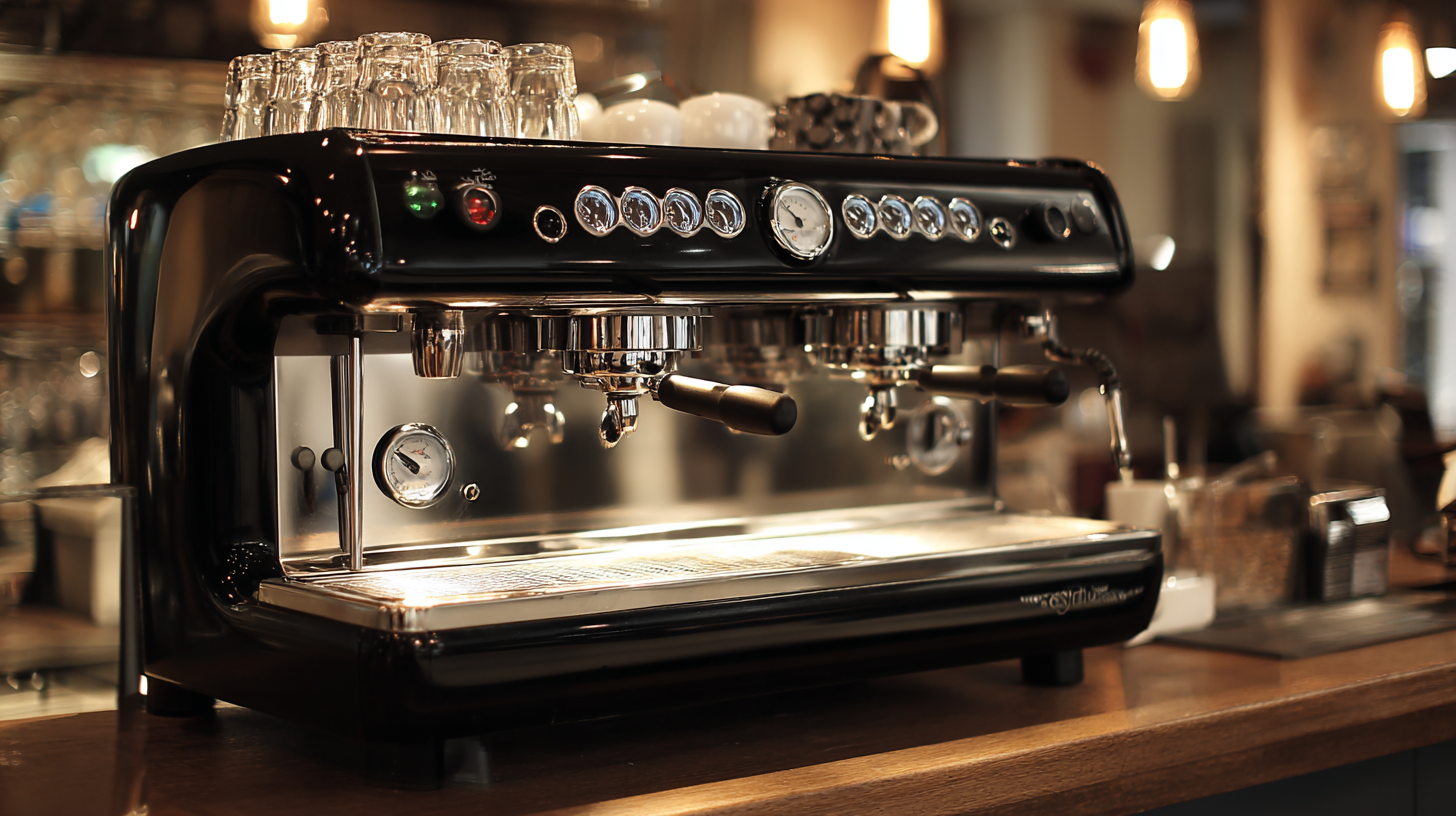
Identifying Your Shop's Coffee Volume Needs: Understanding Daily Demand and Machine Capacity
When selecting the perfect coffee machine for your shop, understanding your daily coffee volume needs is crucial. Industry reports indicate that coffee consumption in cafés can range widely, with some locations serving upwards of 500 cups daily. A machine's capacity should align with these demands; investing in a commercial coffee machine with a higher capacity will enable you to handle peak hours efficiently without sacrificing quality or speed.
Tip 1: Consider a dual-boiler system if your shop expects high foot traffic. This setup allows for simultaneous brewing and steaming, maximizing efficiency during busy periods.
As the landscape of coffee consumption evolves, integrating technology can further enhance operational efficiency. AI advancements are expected to provide insights into customer preferences and behavior, helping you adjust your machine settings and offerings dynamically.
Tip 2: Choose machines that offer intuitive interfaces and programmable options. This will not only streamline your workflow but also allow for consistency in drink preparation, meeting your customers' expectations every time. By understanding your shop's specific needs and leveraging technology, you can ensure that your coffee machine investment pays off in the long run.
Evaluating Key Features: Grind Size Control, Brew Strength Settings, and Temperature Precision
When selecting the ideal coffee machine for your shop, evaluating key features such as grind size control, brew strength settings, and temperature precision is vital. According to a report by the Specialty Coffee Association, a staggering 58% of consumers cite brew strength as a critical factor influencing their coffee choices. Machines that offer customizable brew strength can thus enhance customer satisfaction and promote repeat business. By allowing baristas to adjust the strength, shops can cater to diverse tastes, ensuring that every cup meets the individual preferences of their clientele.
Grind size control is another essential feature that impacts the quality of coffee produced. Research indicates that the grind size directly affects extraction rates, which can alter the flavor profile of the coffee significantly. A recent survey highlighted that 72% of coffee enthusiasts prefer freshly ground beans, underscoring the importance of machines equipped with adjustable grinders. Implementing a machine that allows for precise grind size adjustments can optimize flavor extraction, creating a more flavorful and aromatic cup of coffee that will appeal to discerning customers.
Temperature precision, too, plays a critical role in brewing the perfect cup. Studies show that brewing at the optimal temperature range of 195°F to 205°F can significantly enhance coffee quality. Machines that provide consistent temperature control minimize the risk of under-extraction or over-extraction, both of which can spoil the taste. As coffee shops strive to elevate their offerings, investing in equipment that guarantees temperature stability becomes increasingly crucial in distinguishing themselves in the competitive market.
Comparison of Key Features in Coffee Machines
Assessing Machine Types: Choosing Between Espresso Machines, Drip Coffee Makers, and Specialty Brewing Systems
When selecting the right coffee machine for your shop, understanding the distinctions between different types of brewing systems is crucial. Espresso machines, for instance, are often favored for their ability to produce strong, concentrated coffee that serves as the base for various beverages such as lattes and cappuccinos. According to a report from the Specialty Coffee Association, the espresso segment of the coffee market has been experiencing a growth rate of approximately 5% annually, indicating a robust demand for quality espresso-based drinks. It's essential to choose a machine that can not only deliver consistent results but also handle peak hours efficiently, as some models can dispense up to 200 cups per hour.
On the other hand, drip coffee makers provide a versatile solution for coffee shops that serve varied customer preferences. These machines excel in brewing larger quantities of coffee at lower costs, making them a staple in many establishments. Market research from IBISWorld shows that the drip coffee machine segment comprises about 35% of the overall coffee equipment market, underlining their importance in high-volume environments. Additionally, specialty brewing systems, including pour-over and siphon methods, cater to a niche market focused on craftsmanship and quality. These systems can elevate the customer experience, particularly for shops that prioritize artisanal coffee; with the rise of craft coffee culture, investing in quality brewing methods can differentiate your shop in a competitive landscape.
10 Essential Tips for Choosing the Perfect Coffee Machine for Your Shop
| Machine Type | Pros | Cons | Ideal for | Price Range |
|---|---|---|---|---|
| Espresso Machines | High-quality coffee, quick brewing | Requires skill, higher maintenance | Cafés, specialty coffee shops | $500 - $10,000 |
| Drip Coffee Makers | Easy to use, larger batch production | Less control over flavor | Office environments, casual cafés | $20 - $300 |
| Specialty Brewing Systems | Versatile brewing options, unique flavors | Can be complex to operate | Gourmet coffee shops, mixology | $100 - $5,000 |
Considering Maintenance and Service: The Importance of Reliability and Manufacturer Support
 When selecting a coffee machine for your shop, one of the most crucial factors to consider is the reliability and support from the manufacturer. A quality machine is not just about brewing the perfect cup but also ensuring that it operates smoothly over time. According to industry reports, technical issues can account for up to 25% of unplanned downtime in coffee shops, directly impacting sales and customer satisfaction. By choosing a brand known for robust maintenance services and reliable support, you can minimize these risks and maintain a steady flow of business.
When selecting a coffee machine for your shop, one of the most crucial factors to consider is the reliability and support from the manufacturer. A quality machine is not just about brewing the perfect cup but also ensuring that it operates smoothly over time. According to industry reports, technical issues can account for up to 25% of unplanned downtime in coffee shops, directly impacting sales and customer satisfaction. By choosing a brand known for robust maintenance services and reliable support, you can minimize these risks and maintain a steady flow of business.
In addition to manufacturer reliability, it's essential to evaluate the machine's maintenance requirements. Machines that are easier to service can significantly reduce operational disruptions. For example, a study showed that shops utilizing machines with accessible components experienced a 30% decrease in service time compared to those with more complex setups. When making your selection, ask potential suppliers about their service offerings and response times. This insight will equip you to make a well-informed decision that supports your business goals.
Budgeting Smartly: Analyzing Cost vs. Quality for Long-Term ROI in Coffee Equipment Investment
When investing in coffee equipment for your shop, a keen understanding of cost versus quality is crucial to achieving long-term return on investment (ROI). It’s tempting to opt for a budget-friendly option, but lower upfront costs often come with compromises in quality. Cheaper coffee machines may save you money initially, yet they can lead to higher maintenance costs and a shorter lifespan, which ultimately reduces profitability. Thus, conducting a thorough analysis of potential purchases is essential; prioritize equipment that balances affordability with reliable performance.
Consider not just the initial price but also how the quality of the coffee machine can enhance customer satisfaction and retention. A high-quality machine can elevate the taste of your brews, attract more customers, and foster a loyal following. Additionally, investing in durable and efficient equipment can minimize downtime and operational disruptions, leading to a more consistent revenue stream. Take the time to research reputable brands, read reviews, and seek recommendations to ensure that your purchase reflects a sound investment aligned with your business goals.

Related Posts
-
The Ultimate Guide to Choosing the Best Roasting Machine for Home Coffee Enthusiasts
-
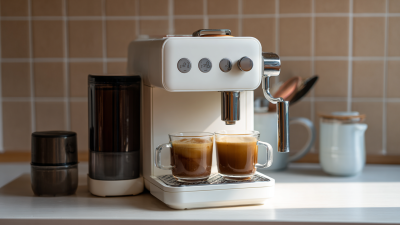
Unlocking the Power of Small Coffee Machines: Expert Insights and 2023 Trends in Home Brewing Efficiency
-
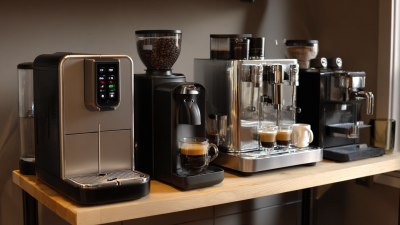
The Ultimate Guide to Choosing the Best Office Coffee Machine for Your Team
-

Exploring Unique Alternatives to Smart Coffee Machines for Your Brewing Needs
-
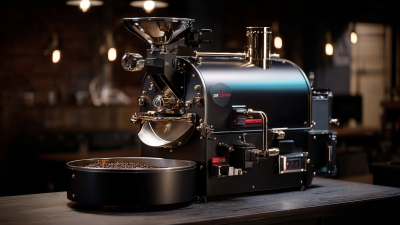
Exploring the Art of Craftsmanship with a Small Batch Coffee Roaster Machine
-
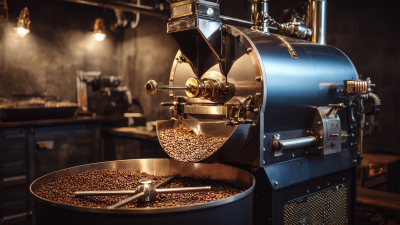
10 Essential Tips for Choosing the Best Coffee Roaster Machine Based on Industry Insights



